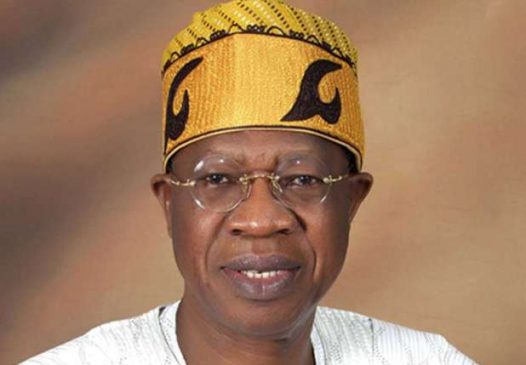By Madu C. Chikwendu
Information Minister Alhaji Lai Mohammed has recorded a significant number of achievements .
Amongst others, he secured Pioneer Status for the creative industry. This is a very potentially transformative tax exemption instrument.
It is not the Minister’s fault that investors are not knocking down the door. Neither is it his fault that stakeholders are not scrutinizing the outcome of the numerous committees including committees to review the work of previous committees like (MOPICON) rather than fast track the pending bill at the National Assembly.
He recently inaugurated a “Steering Committee” for the “Commercialization” of Nigerian Film Corporation NFC.
But there is a pending bill at the National Assembly seeking to transform NFC into a National Film Commission!
The “Commercialization“ committee is made up of only civil servants in addition to a “Business Consultant”
It could be more productive to include practitioners that are familiar with the film business.
The minister also declared that NFC is “…Expected to regulate and organize professional practice in the film industry”. But NFC lacks regulatory powers.
On the contrary, National Film and Video Censors Board, NFVCB, regulates the content of movies. Regulation of the profession is embedded in the Motion Picture Practitioners Council bill whilst other regulatory aspects are captured in the National Film Commission Bill. .Both bills have languished in neglect.
Oga Lai further admonished the states to construct cinema houses. Great…but we know humans are more likely to do what you do than what you say. Funding?
Amongst other things, the Film Commission would administer a film fund. Money would be generated from sources already existing but not implemented for lack of the appropriate vehicle to warehouse the funds.
The funding sources include a percentage of the censorship fees which has already been recommended by the National Film Policy since the nineties and also the Radio/TV Tax which continues to fatten the coffers of distant local governments with no ties, obligations or allegiance to the creative industries.
The minister also reeled out some interesting data about the number of cinemas (screens actually) in the US, India and China. However, the lesson here is not in the numbers but in government policies.
The protectionist tendencies of China has continued to fuel the growth of that country’s creative sector.
More worrisome is Lai’s use of 2015 data…in 2020!
This underscores the need for the government to launch a holistic data mining initiative for the creative industries. This tendency of regurgitating outdated secondary data can no longer advance the interest of the industry. It is in the interest of the government to consult the industry and secure their support for some of these otherwise laudable initiatives.
If the challenge for Shakespeare‘s Hamlet is “to be or not to be”, the challenge for the neglected and abandoned NFC is “to commission or to commercialize?”
Oga Lai…over to you.
Madu C Chikwendu. (08023238203 mcchkwendu@gmail.com)
Filmmaker/Creative Industry Specialist/Public Policy Adviser




